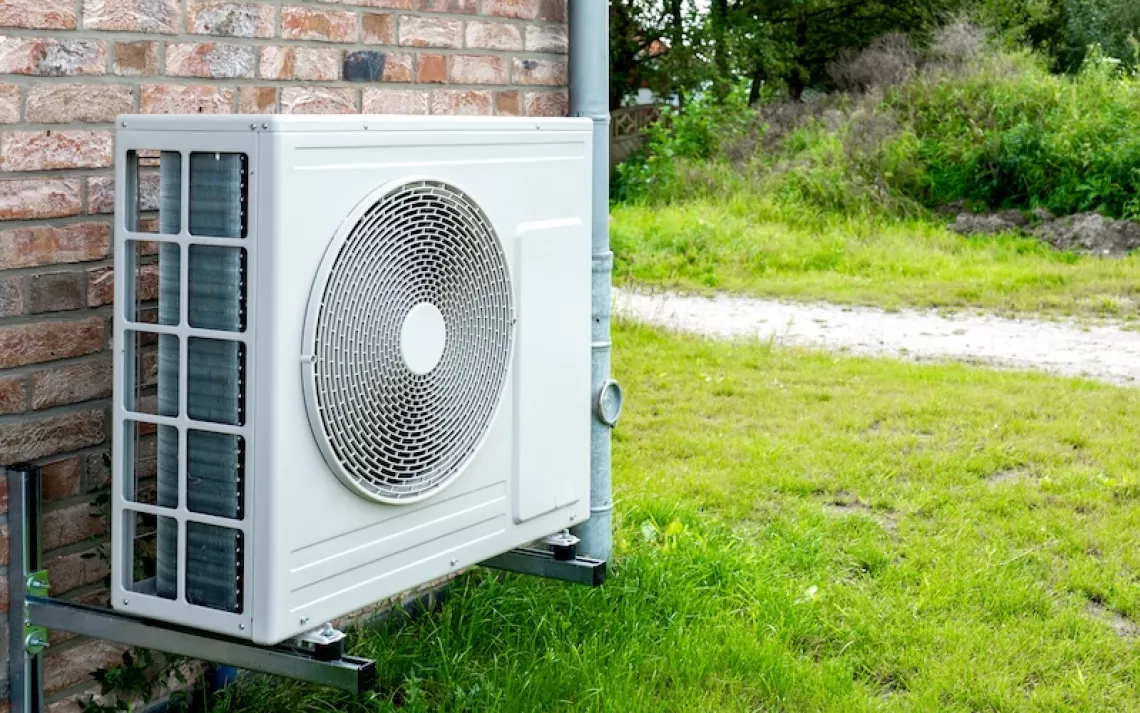It’s Now or Never for Congress to Pass a Climate Bill
Environmental groups and Senate climate hawks are trying to break through Capitol Hill distractions

Senator Sheldon Whitehouse speaks at a press conference on March 30, 2022. | Photo by Bryan Olin Dozier/NurPhoto via AP
Climate hawks in Congress are gearing up for one more shot at passing bold climate-action legislation, and environmental groups say there’s no time to waste, since this legislative season could be Congress’s last best chance to address the climate crisis for years to come.
Late last year, Senator Joe Manchin, the West Virginia Democrat with ties to the coal industry, killed President Biden’s Build Back Better agenda when he announced his opposition to the sweeping climate and social safety net package. The bill, which had already passed the House of Representatives, would have invested more than $550 billion in renewable energy, electric vehicles, transmission, and clean energy manufacturing. It also would’ve imposed a fee on methane pollution from oil and gas operations.
Since Build Back Better’s demise, Congress has shifted its attention to other issues, including voting rights, inflation, and, more recently, the war in Ukraine and reproductive rights.
But in part spurred into action by Russia’s war, which has thrown global energy markets out of whack, Senator Manchin is once again willing to negotiate something—though the specifics seem to shift depending on his mood at any given moment. Characteristically, Manchin wants a lot more government help to boost oil and gas production as well as mining, while also smoothing the way for more pipeline construction.
The latest Manchin machinations include an attempt at a bipartisan deal, which would require votes from 10 Republicans to pass. The West Virginia senator has hosted multiple meetings with some key Democrats and some interested Republicans, including Senators Lisa Murkowski of Alaska, Kevin Cramer of North Dakota, and Mitt Romney of Utah.
Now is the time for environmental journalism.
Sign up for your Sierra magazine subscription.

Climate and environmental groups, however, see the talks as a distraction. And given the fast-approaching midterm elections, they also worry that the bipartisan effort may be a waste of time. “I think that there is not going to be any movement,” Sam Ricketts, a cofounder of the climate policy and advocacy group Evergreen Action, told Sierra. “And I think we will see that, no, there are not going to be 10 Republicans, nor really one or two, who are going to play ball on a bipartisan climate and energy package.”
Instead, climate advocates want the focus to shift to the Democrats-only reconciliation process, a parliamentary budgetary procedure that would allow the Democrats to pass climate investments with a simple majority of 50 votes, instead of the filibuster hurdle of 60 votes.
But the reconciliation strategy is largely on hold while Manchin explores talks with Republicans. The problem, as Ricketts points out, is that very few political observers see 10 Republicans signing on to anything that actually moves the needle on climate change. Even some of the GOP members participating in the talks do not seem keen to compromise. When asked if he could sign on to a deal that included subsidies for electric vehicles if the oil and gas industry also received incentives, Senator Cramer, an unwavering ally of the fossil fuel industry, said, “It’s a high, high price if we did everything that’s on the list. It seems impossible.” Some Republicans have even admitted that the bipartisan negotiations could be a ploy to delay action on the possible reconciliation package.
If and when the bipartisan talks stall out, “We are going to see the rubber band snap back quickly to the opportunity for reconciliation,” Ricketts said. “And I have obviously been eager to see that day arrive quickly.”
Others environmental advocates who know Capitol Hill well see the situation similarly. “I do think that there is strong sentiment to let those [bipartisan] talks run their course. That means that a Democratic-only reconciliation package is not chugging along,” said Melinda Pierce, legislative director for the Sierra Club. But, she added, “I'm not too alarmed about that because so much of the hard work has already been done.”
She pointed to the $320 billion clean energy tax credits contained in the now-defunct Build Back Better Act, which have already passed in the House of Representatives. Those provisions are essentially ready to go. As a result, it won’t be difficult to put a legislative package together in short order. “I think there can be a swift pivot to reconciliation,” Pierce said. “It’s really sort of a hard decision that needs to be made by 50 senators about what’s in and what’s left on the cutting-room floor.”
The bipartisan talks are a “distraction” from reconciliation, Pierce said, but “it could be that the bread crumbs of these conversations is what is leading us to final negotiations and the only path forward, which is reconciliation.”
When asked whether she is optimistic that Congress can get the job done, Pierce said, without hesitation, “Yes.”
Democratic members of Congress have been careful not to criticize the bipartisan negotiations too harshly, but they are clear that any deal with Republicans cannot result in sacrificing comprehensive climate policy.
“The goal of any major climate legislation has to be holding warming below 1.5-degrees Celsius, or returning to it after we overshoot. Mother Nature’s test is the only one that matters here,” Senator Sheldon Whitehouse, a Democrat from Rhode Island and one of the most passionate climate-action voices in the Capitol, said in a statement to Sierra. “The bipartisan effort and the reconciliation effort together have to meet that test. No one has proposed a bipartisan measure that even comes close, so it’s hard to see success without reconciliation also.”
The urgency from Senator Whitehouse and environmental groups is being fueled by the latest scientific findings showing that civilization is quickly running out of time to slash carbon pollution. Just this spring, scientists warned that there is a “brief and rapidly closing window to secure a livable future.” But most nations, including the United States, aren’t close to making the carbon pollution cuts needed to keep global temperatures in check.
“Between increasingly devastating climate-fueled extreme weather events, high gas prices, and rising inflation, we are out of time for the Senate to pass a transformational climate, jobs, and justice reconciliation bill that will save families money, create good paying jobs, and build a healthier, more just clean energy future,” Matthew Davis, senior director of government affairs at the League of Conservation Voters, said in statement to Sierra.
With midterm-election season beginning to heat up, Ricketts of Evergreen Action cited July 4 as a sort of unofficial deadline. The Democrats technically have until September 30 before the reconciliation process expires. But election campaigning and a long August recess likely mean the work needs to get done much sooner.
“The next few weeks are mission critical here, particularly in May and June,” he said.
If Congress fails yet again to pass climate legislation, there may not be another chance to do so for years. With expectations that Republicans could retake one or both chambers of Congress, it may not be until the second half of this decade before Democrats get another shot.
“The window could be closing. The stars are aligned. It’s now or never,” Pierce said.
Senator Whitehouse echoed that sentiment. “The coming months may be our final chance to get something big done on climate before the window to lead the planet to safety closes. I’m working very hard toward that goal, and I remain hopeful it can be done,” he said. “The stakes couldn’t be higher.”
 The Magazine of The Sierra Club
The Magazine of The Sierra Club



